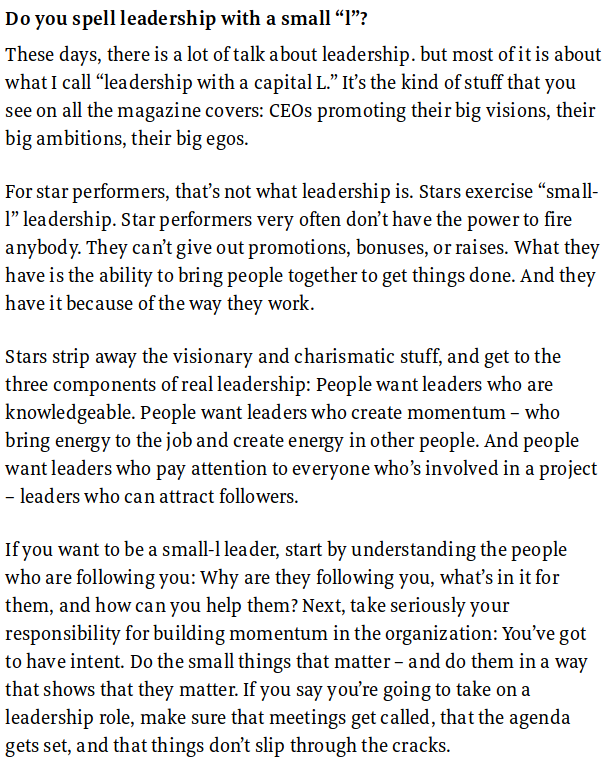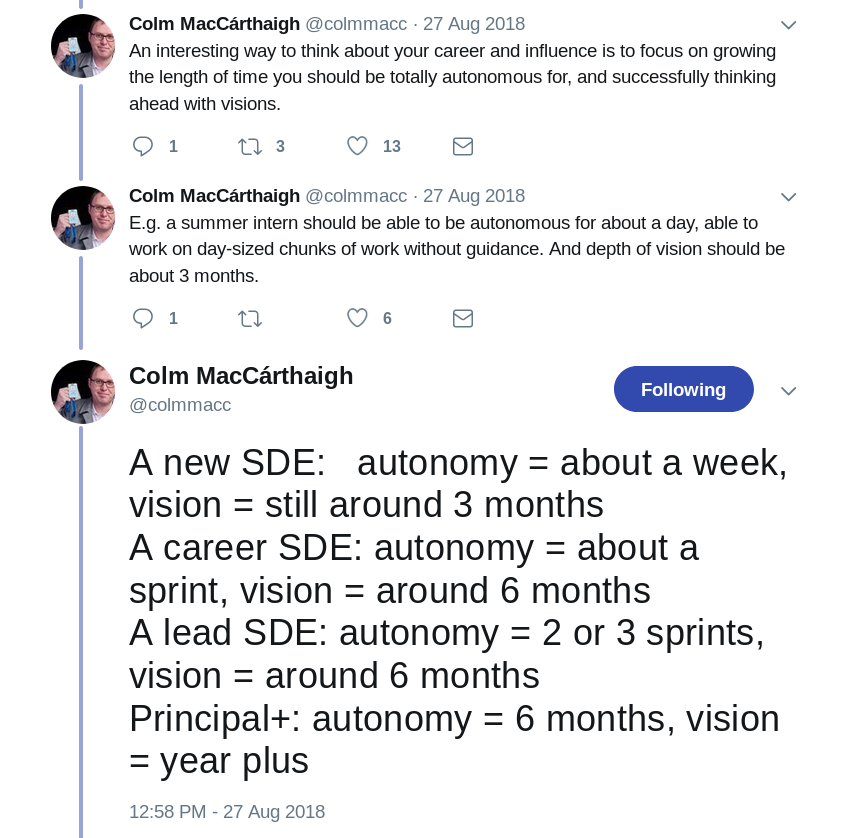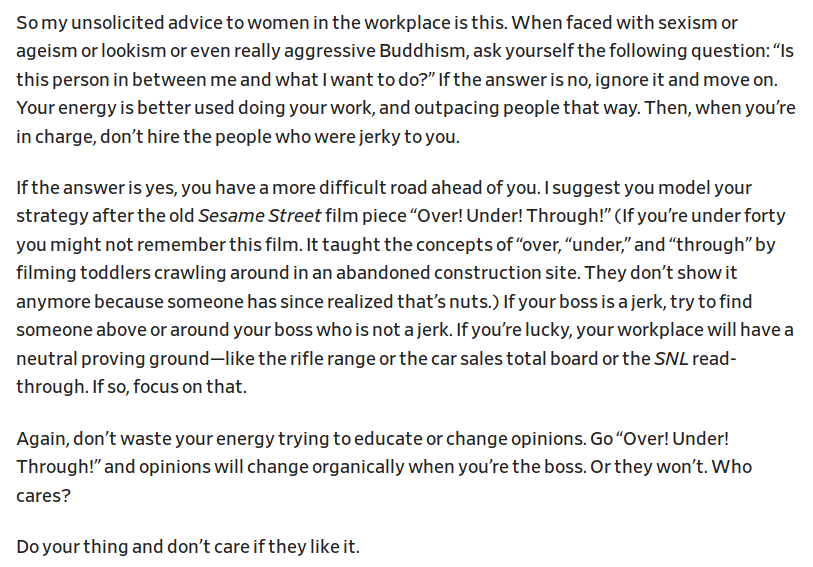Collected career advice gems
May 10, 2019
(Adapted from my original Twitter thread)
I recently spoke to a group of engineers about “Career Growth” as an individual contributor in tech. As I was talking, I realized there are some pieces of advice that have stuck with me a long time, and they keep popping into my head when I speak about this topic.
Be a “small-l” leader
The book How to Be a Star at Work (corny title, but full of gems) introduced me to the concept of “small-l” leadership and “Big-L” Leadership. Engineers are small-l leaders: we lead through influence & teamwork, not through Authority with a capital A.

Read more here: https://www.fastcompany.com/33955/are-you-star-work
Take opportunities you’re not quite ready for
In 2006, Marissa Mayer interviewed me for a job at Google. I did not know who she was when she walked in. I think I complimented her skirt? ![]() Anyway, at dinner, she gave us candidates this advice about taking a job slightly outside your comfort zone.
Anyway, at dinner, she gave us candidates this advice about taking a job slightly outside your comfort zone.

Read more here: https://www.cnn.com/2012/04/05/tech/google-marissa-mayer/index.html
Focus on growing your autonomy and forward-looking vision
Early on in my career, I thought becoming a senior engineer meant just getting better at writing Java code, but there’s so many more dimensions to growth as an engineer. I like Colm MacCarthaigh’s framing around expanding autonomy & vision as you grow.

Read more here: https://twitter.com/colmmacc/status/1034167473447165952
Over, Under, Through!
I identified with so much of Tina Fey’s book Bossypants. She talks about her struggles as a woman in a male-dominated field in a way that’s empowering, not depressing. I especially loved her advice for dealing with jerks. Over, Under, Through!

Read more here: https://slate.com/technology/2011/07/tina-fey-s-bossypants-an-excerpt.html
Focus on expertise, not products
For this final gem, I have not been able to find a good online source describing it, and the story was told to me years ago so the details have gotten a little fuzzy.
A knife (or cutlery? axes?) company was failing during a war (WW2 maybe?), so they took a good look at what they were really good at. Not just the product they made, but their processes & expertise. They realized that they were really good at making well-balanced sharp metal edges (because, knives), so they started making a totally different product that also needed well-balanced metal edges: airplane propellers. This pivot saved the company (no idea what company??).
Anyway, the point is: your engineering expertise is not the products you work on. Those will change throughout your career. Take a look at what you’re really good at, and find opportunities to leverage them.